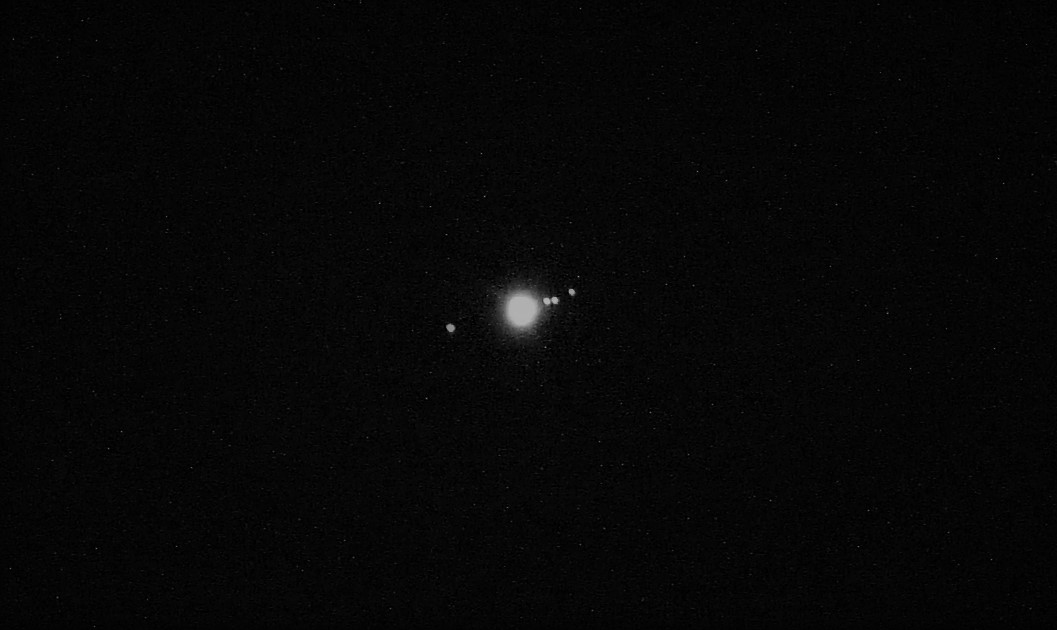Just imagine that when you gaze at the night sky, instead of one moon, you see a lot of moons – some big and some small. This could be a very real scenario if you were on Jupiter.
Jupiter has got 79 known moons. Four of them are very big – so big that they are easy to see from earth using some simple DSLR camera or good binoculars.
The Galilean moons of Jupiter (Io, Europa, Ganymede, and Callisto) were first discovered by Galileo Galilei in early 1600s. The most remarkable part is that till that time, people believed that earth is the centre of Universe. As Galileo found the moons revolving around Jupiter, he realized that not all celestial objects rotate around the earth. This discovery paved the way for more research in outer space and gave rise to the astronomy as we know of it today.
These moons of Jupiter are also famous for first time calculating the speed of light by a Danish astronomer. By observing the eclipses of the moons of Jupiter, the scientist could calculate that the speed of light is finite. What would Einstein have done had this not been discovered?
Luckily, we can see these moons with relative ease today. So, go out and do some star gazing and you might also be able to say hello to these celestial neighbors.
By the way, if you are one of those people who feel that they are the most important beings in this cosmos and everything revolves around them, this could be very disappointing. Sorry mate!

